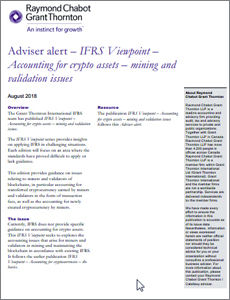Cities are changing and municipal managers will be facing numerous challenges in the coming years. It’s important to be ready.
Bill 122 is intended to give municipalities more autonomy. The law was assented to in June 2017 and recognizes municipalities as local governments.
One of its main objectives is to make each city more accountable towards its citizens in terms of its management models and decisions. To foster your city’s sustainability, you must first understand the challenges and then determine objectives to achieve your commitments.
Elected officials and their role
Over time, municipal roles and responsibilities have become more complex. The relationship between the Québec government and municipalities has been redefined and powers have been redistributed.
Recognized as an integral part of the Québec democratic system, municipalities must demonstrate they are involved in their main roles:
- Ensuring economic prosperity;
- Guaranteeing environmental responsibility;
- Supporting social cohesion;
- Ensuring efficient and effective management.
In each of these roles, the municipality must consider major factors.
Ensuring economic prosperity
When it comes to economic health, you have to be able to take an informed view of debt service to avoid having your entire action plan compromised by an interest rate increase.
The digital era and artificial intelligence are transforming ways of doing things. Whether it’s managing operations, internal and citizen communications or improved access to services for citizens, digital technology offers concrete improvement options for current systems.
Guaranteeing environmental responsibility
The environment has been a concern for many years. In a sustainable development context, a city must take account of ecological factors and adopt a coordinated approach. Climate change, greenhouse gas emissions, shoreline erosion are matters of concern that must be quickly contained. Municipalities must deploy collective efforts to reduce the environmental impact and achieve tangible results.
Supporting social cohesion
Changing demographics are having an impact on all municipal social strata. Citizens and tourists have diversified interests and needs. To better adapt to change, a plan to attract citizens and optimize services is essential.
Now, more than ever, people want to be involved in finding solutions and making decisions. It takes creativity to reach out to the population and promote participation.
Additionally, there is a labour shortage in Québec cities. Sooner or later, the impact will be significant. It’s important to develop immigration strategies, prepare successors and attract employees.
Ensuring efficient and effective management
One governance challenge that all municipal organizations will face at some time is the need to align the vision of elected officials with the administration’s capacity to implement that vision. Key success factors include a strategic reflection and a long-term action plan.
Additionally, sound governance must ensure transparency regarding budgets, the awarding of contacts and access to information.
In the face of these numerous issues, municipalities must capitalize on opportunities to transform for the benefit of their citizens.
In the coming weeks, members of Raymond Chabot Grant Thornton’s Management Consulting group will be publishing a series of articles with ideas to address these issues.
10 Sep 2018 | Written by :
Pierre Fortin is a partner at Raymond Chabot Grant Thornton. He is your expert in Management...
See the profileYou could also like to read
Next article
Adviser alert – August 2018
The Grant Thornton International IFRS team has published IFRS Viewpoint – Accounting for crypto assets – mining and validation issues.
The IFRS Viewpoint series provides insights on applying IFRS in challenging situations. Each edition will focus on an area where the standards have proved difficult to apply or lack guidance.
This edition provides guidance on issues relating to miners and validators of blockchains, in particular accounting for transferred cryptocurrency earned by miners and validators in the form of transaction fees, as well as the accounting for newly created cryptocurrency by miners.
The issue
Currently, IFRS does not provide specific guidance on accounting for crypto assets. This IFRS Viewpoint seeks to explores the accounting issues that arise for miners and validators in mining and maintaining the blockchain in accordance with existing IFRS. It follows the earlier publication IFRS Viewpoint – Accounting for cryptocurrencies – the basics.
Next article
Located in Thetford Mines, Quebec, RAD Technologies Inc. is one of the largest North American implement and application manufacturers. RAD Technologies Inc. is a leading manufacturer of implements and specialty applications serving OEM customers.
[French only]
29 Aug 2018 | Written by :
Guy Fauteux is a vice-president at Raymond Chabot Grant Thornton. Contact him today!
See the profileNext article
Quebec is in urgent need of entrepreneurial successors. A recent study conducted by the Business Development Bank of Canada (BDC) revealed that about 37% of the province’s owners plan on disposing of their business in the next five years.
In more than half of the cases, the transferors plan on transferring their business to someone outside of the family.
If you have an MBA, this is an exceptional opportunity to take on new and exciting challenges. But maybe you don’t see yourself as an entrepreneur who must oversee everything. So why not join a group of transferees?
With globalization, businesses must be able to count on a set of specialized, complementary skills in order to remain competitive. This is why today, SMEs, traditionally managed by a sole owner, are generally transferred to a group of two or three transferees. The formula can vary: for example, people from outside and employees from the business can team up with the transferor’s child.
MBAs often have the skill set wanted by a transferor, a team of transferees and money lenders. So, it’s possible to integrate into a team of transferees by taking on a key management position in the SME. Your skills might even be considered as an interesting down payment.
Furthermore, taking over a business is much more advantageous and less risky than creating one. In fact, an established SME already comes with a certain reputation, clients, a network of suppliers and distributors, equipment, a proven modus operandi, etc. What’s more, during the progressive transfer of ownership, transferees benefit from advice from the transferors.
You can turn your avant-garde project into reality if you acquire a business with the right characteristics. It would certainly be a great challenge to revolutionize an SME that you just acquired, even if it operates in a traditional sector! Think about how Tesla has revolutionized the automobile industry…
How to proceed
Are you ready for such an adventure? What’s important is to know yourself well and seriously consider your ambitions with the help of your family.
The best way to assess your aptitudes is to complete a psychometric test, which will help determine whether you have the profile of an entrepreneur or a manager. Several firms offer this kind of test and can also offer a professional development plan.
Next, find out from your network and entrepreneurial ecosystem in your region which SMEs are looking for transferees. Our firm, Raymond Chabot Grant Thornton, can also provide you with efficient support in this process and bodies, such as the Centre de transfert d’entreprise du Québec (CTEQ), can put you in touch with transferors and other transferees.
Are you managing an SME that will transfer ownership in the coming years? If you would like to be part of a team of transferees, we recommend expressing your interest sooner rather than later.
Transferors prefer to hand over the reins of their business to people they know since the transfers are usually progressive and come with a balance of sale. Lenders will be more inclined to finance your project if you know the business well, its industry and challenges.
Prevent under-investment
As business managers (or future transferees), MBA graduates can also play a pivotal role in reversing a trend in the Quebec economy that is cause for some concern: under-investment in SMEs, particularly those on the verge of a transfer.
Various studies have shown that as retirement approaches, entrepreneurs are more inclined to protect their wealth than grow their business. They are especially unwilling to add debt to the balance sheet, and, as a result, reduce their productive investments, which hampers the business’s competitiveness in the long run and lowers its market value.
For you, as a manager, one solution would be to encourage and help the owner of your SME to create a solid succession plan. This plan would detect the various challenges related to the transfer of ownership (financial, legal, human, strategic issues, etc.) and lay the proper foundation for the transfer process steps.
You would therefore participate in the development of a strategic plan that sets out the growth objectives and investments required to succeed: a plan that would make the transferor feel more secure and make him or her more willing to invest.
Quebec has many entrepreneurial success stories. Let yourself be inspired by them and continue the tradition!
This article was first published on the AMBAQ website.





